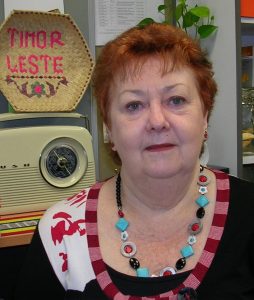
Members and friends are invited to the join us on Wednesday, October 20, 2021 commencing at 5.00pm AEDT* by Zoom webinar
*Note Daylight saving will be in operation. Check local times
Zoom link: Register here
Zoom tips: https://acal.edu.au/zoom-tips/
2021 Annual General Meeting Agenda
Voting and nominations are available to financial ACAL members.
1. Confirm the minutes of the previous AGM held on October 21, 2020
2. Receive and adopt an annual report from the Executive
3. Receive and adopt the audited accounts of ACAL
4. Elect new officers and Executive Committee for 2021-22
The meeting is to elect the following
- President
- Vice President (to be based in a state or territory different from that of the President)
- Honorary Secretary
- Honorary Treasurer
5. Announce state and territory representatives
6. Appoint the auditor, Penny Carroll, Outer Eastern Bookkeeping
7. Close meeting
Links
Interested in nominating?
The four Executive positions are open to all financial ACAL members and details are provided here
Nomination forms
Position descriptions
Constitution
2021 Arch Nelson Address with Lorraine Sushames
Arch Nelson played a major role in placing adult education on the government and public agenda and he was inaugural Chairman of the Australian Council for Adult Literacy (ACAL).
Each year, in recognition of the outstanding contribution by Arch Nelson, a leading figure in the field of adult education is invited to give an address in Arch’s name.
The speaker this year is Lorraine Sushames and her topic is: Moments in time – tensions, trajectories and intersections.
Not able to attend? We’ll make a recording available via the website and newsletter.
Arch Nelson Speaker - Lorraine Sushames
 Lorraine has 26 years’ experience as a specialist in the adult literacy field and is a long-time advocate for the provision of appropriate programs for adults with literacy gaps. She has held the role of Honorary Treasurer and Member of the ACAL Executive since 2004. She maintains an interest in policy development and its implications for funding and practice. Of particular focus is the role that literacy plays in post-conflict adult education and in the personal and economic advancement of culturally diverse populations. Her publications reflect these interests.
Lorraine has 26 years’ experience as a specialist in the adult literacy field and is a long-time advocate for the provision of appropriate programs for adults with literacy gaps. She has held the role of Honorary Treasurer and Member of the ACAL Executive since 2004. She maintains an interest in policy development and its implications for funding and practice. Of particular focus is the role that literacy plays in post-conflict adult education and in the personal and economic advancement of culturally diverse populations. Her publications reflect these interests.
